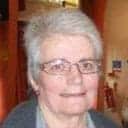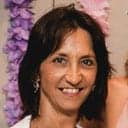Team Photo: Auckland Deaf Society Netball Club, Teams ‘A’ and ‘B’, 1982
AUCKLAND DEAF SOCIETY NETBALL CLUB, Teams ‘A’ and ‘B’ – 1982. BACK ROW: D. Burch (Coach), J. Trinder, C. Poutai, A. Hudson, M. Michelle, M. Robinson, P. Clements, C. Scally, J. Clews, R. Tukerangi, A. Killen (Chairwoman). FRONT ROW: Z. Reader, S. Cornall, M. Hogan (Vice Capt. B Team), L. Wratt (Capt. B Team), K. Sedon (Captain A Team), S. Skinner (Vice Capt. A Team), H. Neilson, J. Joenen. ABSENT: E. McNamara (A Team), S. Claridge (B Team), L. McAllister (B Team).
- Deaf Clubs
- Deaf Sports


































